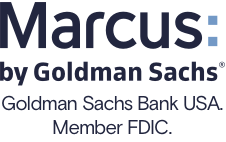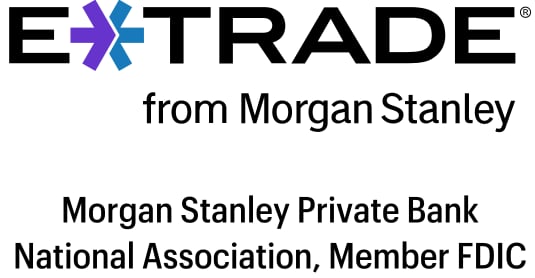Chase CD Rates 2025: Low Across Terms
Chase CD rates are low across its wide terms from one month to 10 years. The best Chase CD rates are only for checking customers.

Many, or all, of the products featured on this page are from our advertising partners who compensate us when you take certain actions on our website or click to take an action on their website. However, this does not influence our evaluations. Our opinions are our own. Here is a list of our partners and here's how we make money.
Chase’s certificates of deposit rates tend to be extremely low. There are a few exceptions among rates available to Chase checking customers, but even then the rates don’t compete with what some online banks can offer. Chase’s main strengths are the variety of CD terms and a relatively low minimum deposit.
» COMPARE: See the best CD rates
Chase CD rates
Standard CD rates at Chase Bank are available to anyone and require a minimum deposit of $1,000, which is a typical amount. Minimum deposit requirements for standard CDs can range from $0 to $10,000.
Relationship rates are for those who have a personal Chase checking account that they can link to a Chase CD, and higher deposits usually mean higher rates.
To open a Chase CD online, you need a Chase checking account; otherwise, visit a branch.
This is a look at some of Chase's rates for the most common CD terms plus two notable terms.
CD term | Standard rate* | Relationship rates* |
|---|---|---|
4-month | 0.01%. | 3.50% for $1,000-$9,999. 3.50% for $10,000-$99,999. 4.00% for $100,000 or more. |
10-month | 0.01%. | 3.00% for $1,000-$9,999. 3.00% for $10,000-$99,999. 3.50% for $100,000 or more. |
1-year | 0.01%. | 2.00% for $1,000-$9,999. 2.00% for $10,000-$99,999. 2.00% for $100,000 or more. |
3-year | 0.01%. | 2.00% for $1,000-$9,999. 2.00% for $10,000-$99,999. 2.00% for $100,000 or more. |
5-year | 0.01%. | 2.00% for $1,000-$9,999. 2.00% for $10,000-$99,999. 2.00% for $100,000 or more. |
10-year | 0.01%. | 2.00% for $1,000-$9,999. 2.00% for $10,000-$99,999. 2.00% for $100,000 or more. |
*Rates listed are for San Francisco. Rates may vary by location. | ||
Chase CDs, even at the highest tier of relationship rates, don’t come close to the yields that online banks can offer.
» Want to check how Chase ranks overall? See our Chase review
More details about Chase CDs
Minimum deposit | For standard rates and lowest-tier relationship rates:
For the two higher-tier relationship rates:
A minimum deposit of $1,000 is fairly common, though some banks require far less, even $0. |
Range of CD terms | 1 month to 10 years. This is a wide range. Standard term ranges are three months to five years. |
Early withdrawal penalty |
These penalties are on the higher end. Compare early withdrawal penalties by bank. |
Other fees | None, which is common for CDs. |
Grace period | 10 days after the CD's maturity date. Chase CDs automatically renew, so this 10-day window is the only time to withdraw without getting hit by a penalty. Compare grace periods by bank. |
Types of account ownership |
Note: Chase doesn’t offer IRA CDs (for retirement). See IRA CD rates at other banks. |
» Learn more about Chase's regular savings account
Marcus by Goldman Sachs High-Yield CD

4.25%
1 year
Bread Savings™️ CD

4.50%
6 months

Federally insured by NCUA
Alliant Credit Union Certificate

4.00%
1 year

Member FDIC
Discover® CD

4.00%
1 year
What to consider when opening CDs
Interest rates are fixed. If you open a Chase CD today, its annual percentage yieldAPY will stay the same until the CD expires. Typically, being able to lock in a CD rate benefits you if rates are about to fall, but on the flip side, you’ll earn less on a CD if rates keep rising. Here’s a quick look at historical CD rates. Or, if you want a sample of rates each month, see current CD rates.
Be aware of two common rules with CDs: You generally can’t make partial withdrawals or add additional funds after making a deposit into a CD.
You lose interest if you withdraw early. CDs are built to keep your money out of sight, out of mind. If you dip into a Chase CD before it expires, there’s an early withdrawal penalty, which means losing some or all the interest you earned. Some other banks offer CDs with no penalties; see the best no-penalty CD rates.
Interest accrues in a CD during the term, so you can benefit from compound interest. (See our CD calculator page or use the calculator below.) You can request to receive interest as regularly scheduled payments, or disbursements, to an external account or by check. The frequency can be monthly, quarterly or at longer intervals.
» Unsure about CDs? Consider the best high-yield savings accounts instead
More about Chase
Chase is one of the largest national banks. Of the three most common types of deposit accounts — checking accounts, regular savings accounts and CDs — Chase has the most to offer with its checking account. There’s access to thousands of ATMs and branches, as well as robust online and mobile banking experiences. New checking customers can also take advantage of a sign-up bonus. CDs, however, are not a strong point for Chase. Outside of consumer deposit accounts, Chase offers credit cards, mortgages, business checking, business credit cards and J.P. Morgan self-directed investing.
CD details
Months
Years









